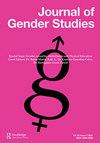“I was just so confused, like does this even count as sexual assault?”: understanding LGBTQA+ sexual victimization, help-seeking, and mental health outcomes
IF 1.5
3区 社会学
Q2 SOCIAL ISSUES
引用次数: 0
Abstract
ABSTRACTMost research on sexual victimization centres on cisgender, heterosexual experiences and pushes LGBTQA+ experiences to the margins. The current study focuses on queer experiences of sexual victimization and subsequent help-seeking behaviours and mental health outcomes. Fifteen in-depth interviews with queer identifying individuals who experienced sexual violence were conducted and analysed using a thematic analysis approach. A total of 32 incidents of sexual violence were discussed across the 15 participants. Findings indicate that negative disclosure responses from others, as well as normalizing and rationalizing experiences of sexual violence, are detrimental to help-seeking behaviour. Incidents that involved sexually minoritized women and heterosexual men were met with more positive disclosure responses than incidents that occurred between two sexually minoritized women. Additionally, lesbians experienced more supportive reactions to disclosure than bisexual and queer women. Mental health professionals who were knowledgeable and experienced in both trauma and LGBTQA+ related issues had the most impact on improved health and well-being for queer survivors of sexual violence.KEYWORDS: LGBTQA+ sexual victimizationqueer sexual violenceLGBTQA+ help-seekingLGBTQA+ health outcomes Disclosure statementNo potential conflict of interest was reported by the author(s).Notes1. Sexual violence is a broad term used to describe any unwanted sexual contact that involves coercion, manipulation, or force, including harassment, image-based abuse, touching, rubbing, sexual assault, or rape or threat of these acts.2. The term minoritized is used over minority to emphasize that social and structural forces marginalize certain groups and create systemic discrimination and stigma (Sensoy & DiAngelo, Citation2017; Smith, Citation2016)3. We use the term LGBTQA+ to describe individuals who identify as homosexual, bisexual, asexual, transgender or any nonconforming sexual orientation and/or identity. We want to highlight differences in social identity (similar to work by Schulze & Koon-Magnin, Citation2017) because it is important to understand how different identities within the LGBTQ+ community experience consent and sexual violence. We also utilize the term queer as an inclusive representation of this diverse group.Additional informationFundingThis work was supported by the National Institutes of Health [U54MD012388.].Notes on contributorsBrooke A. de HeerBrooke de Heer is an Assistant Professor in the Department of Criminology and Criminal Justice at Northern Arizona University. Her research agenda focuses on issues of gender and power in sexual violence, with an emphasis on health disparities and inequitable treatment of marginalized victims involved in the criminal justice (CJ) system. Her work seeks to investigate and validate marginalized peoples’ experiences with sexual violence and work to dismantle systems of oppression that create disparate health outcomes for minoritized populations. She has been published in Feminist Criminology, Violence Against Women, Sociology Compass, Journal of Interpersonal Violence, Violence and Victims, Journal of school Violence, and American Indian and Alaska Native Mental Health Research.Siréne LipschutzSiréne Lipschutz is a Ph.D candidate in the Interdisciplinary Health program at Northern Arizona University. Her research interests focus on decreasing transmission of Multigenerational Trauma between parents and children ages 0-5, in urban Native American families.Sydney ShevatSydney Shevat is a Ph.D candidate in the Sociology at University of Tennessee. She received her M.S. from the Department of Criminology and Criminal Justice at Northern Arizona University. Her primary research interests include green criminology and environmental injustice, displacement, political crime, and gendered violence.“我很困惑,这算不算性侵犯?:了解LGBTQA+性受害者、寻求帮助和心理健康结果
摘要关于性侵害的研究大多集中在异性恋和异性恋的经历上,将LGBTQA+的经历推到了边缘。目前的研究集中在性侵害的酷儿经历和随后的求助行为和心理健康结果。对经历过性暴力的酷儿个体进行了15次深度访谈,并使用主题分析方法进行了分析。15名参与者共讨论了32起性暴力事件。调查结果表明,来自他人的负面披露反应,以及将性暴力经历正常化和合理化,不利于寻求帮助的行为。涉及性少数群体女性和异性恋男性的事件比发生在两个性少数群体女性之间的事件得到了更积极的回应。此外,与双性恋和酷儿女性相比,女同性恋者在公开信息方面得到了更多的支持。在创伤和LGBTQA+相关问题上知识渊博、经验丰富的精神卫生专业人员,对改善性暴力的酷儿幸存者的健康和福祉影响最大。关键词:LGBTQA+性受害性暴力LGBTQA+求助LGBTQA+健康结果披露声明作者未报告潜在利益冲突。性暴力是一个广义的术语,用来描述任何不受欢迎的性接触,包括胁迫、操纵或武力,包括骚扰、基于图像的虐待、触摸、摩擦、性侵犯、强奸或这些行为的威胁。“少数化”一词用于强调社会和结构力量使某些群体边缘化,并造成系统性歧视和耻辱(Sensoy & DiAngelo, Citation2017;史密斯Citation2016) 3。我们使用LGBTQA+这个术语来描述同性恋、双性恋、无性恋、变性或任何不符合标准的性取向和/或身份的个体。我们想要强调社会身份的差异(类似于Schulze & Koon-Magnin, Citation2017),因为了解LGBTQ+社区中不同身份如何经历同意和性暴力是很重要的。我们也用酷儿这个词来代表这个多元化的群体。本研究得到了美国国立卫生研究院的支持[U54MD012388.]。作者简介brooke A. de Heer brooke de Heer是北亚利桑那大学犯罪学和刑事司法系助理教授。她的研究重点是性暴力中的性别和权力问题,重点是健康差距和刑事司法(CJ)系统中边缘化受害者的不公平待遇。她的工作旨在调查和验证边缘化人群在性暴力方面的经历,并致力于消除压迫制度,这些制度为少数群体带来了不同的健康结果。她曾在《女权主义犯罪学》、《针对妇女的暴力》、《社会学指南》、《人际暴力杂志》、《暴力与受害者》、《学校暴力杂志》、《美国印第安人和阿拉斯加原住民心理健康研究》等刊物上发表文章。sirsamne Lipschutz是北亚利桑那大学跨学科健康项目的博士候选人。她的研究兴趣集中在减少父母和0-5岁儿童之间的多代创伤的传播,在城市美洲原住民家庭。Sydney Shevat是田纳西大学社会学博士候选人。她在北亚利桑那大学犯罪学和刑事司法系获得硕士学位。她的主要研究兴趣包括绿色犯罪学和环境不公正、流离失所、政治犯罪和性别暴力。
本文章由计算机程序翻译,如有差异,请以英文原文为准。
求助全文
约1分钟内获得全文
求助全文
来源期刊

Journal of Gender Studies
Multiple-
CiteScore
4.40
自引率
0.00%
发文量
52
期刊介绍:
The Journal of Gender Studies is an interdisciplinary journal which publishes articles relating to gender from a feminist perspective covering a wide range of subject areas including the Social and Natural Sciences, Arts and Popular Culture. Reviews of books and details of forthcoming conferences are also included. The Journal of Gender Studies seeks articles from international sources and aims to take account of a diversity of cultural backgrounds and differences in sexual orientation. It encourages contributions which focus on the experiences of both women and men and welcomes articles, written from a feminist perspective, relating to femininity and masculinity and to the social constructions of relationships between men and women.
 求助内容:
求助内容: 应助结果提醒方式:
应助结果提醒方式:


